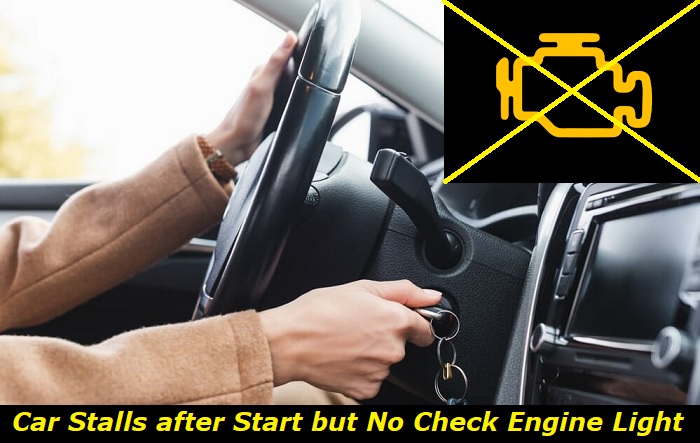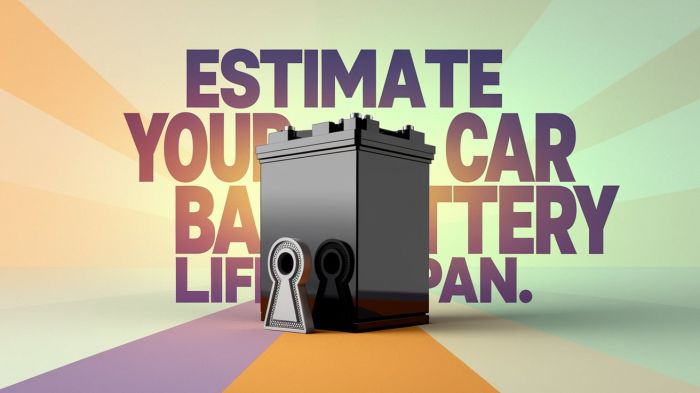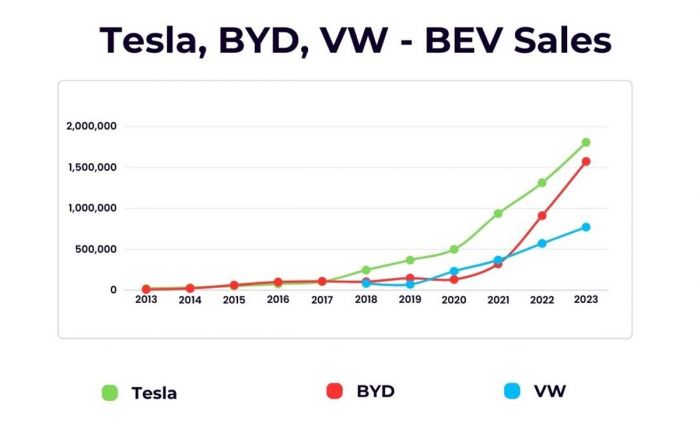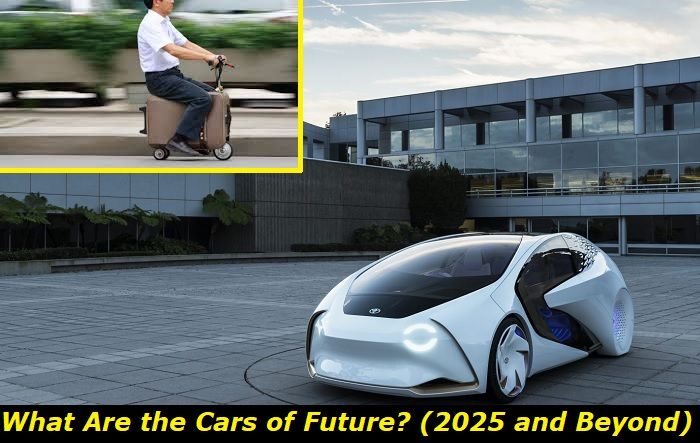Your car may stall without showing the check engine light because of a bad fuel supply, blockage in the air supply, electrical system failures, or a sudden drop of voltage in the system. These are the most common and obvious reasons for your vehicle stalling. Though, there are also other problems that can cause this issue and are much harder to locate and deal with.
Engine stalling issues highlights
- Level of urgency:High
- Can you drive?Obviously, no
- DIY inspection:Possible but very complicated
- DIY repair:Impossible
- Price for repair:$350 - $900
- Common Reasons:Fuel or air supply problems, immobilizer
- Ways to fix:Professional inspection is needed, checkif there is fuel in the tank

Most common scenarios of the car stalling after starting
To identify the reasons for such a behavior of your vehicle, you need to register the scenario. In some cases, this may happen often, while in some other situations, the car may stall once a week. Anyway, the problem will need inspection and repairs but the reasons for such issues may be completely different.
So, here's the scenario I will be paying the most attention to in this article:
- your vehicle starts like usual and the engine starts idling without any problems;
- suddenly, you notice that the engine is stalling or the RPM is going down quickly and then it stalls;
- you try restarting the engine and sometimes you can do that but very often the engine won't start for some time;
- everything is OK and the dash doesn't show any warning lights to give you a hint of what is wrong with the car;
- you check the vehicle with the code scanner and surprisingly find no codes in the ECU and no error messages;
- when the car starts the next time, it may work OK as if nothing happened or it may repeat the previous scenario.
This problem is much more common with modern cars than you may think. And there are several important culprits that you should check if your vehicle has the same symptoms. The problem is not that easy to locate and fix, so you may need professional help. Very often, even the inspection is not easy to complete on your own. But let's see what you can do.
What are the reasons for your car stalling after the start?
We love our cars and we tend to get upset or even frustrated when something goes wrong. Especially, when we think about those crazy bills from the repair shop. But is there anything you can do on your own when your car stalls after you start it? Well, it depends on your technical skills, but there are certainly several things you may try if you know the common problems that cause this issue.
Here's what can cause stalling after you start the engine:
1. Bad fuel supply
Problems with fuel supply are pretty common because modern vehicles need very high pressure and usually use high-pressure fuel pumps (for direct injection and diesel engines). These pumps are not eternal and can be the culprits for your car stalling immediately after you start it.
Also, bad fuel supply may be caused by problems with fuel injectors. If they are clogged or broken, there is no chance you can drive the car without any problems. Such issues may cause all different kinds of symptoms but stalling is one of the most common ways to know that the injectors are bad.
Also, the fuel filter is worth checking. If it's clogged, the fuel just can't make it to the injectors with the needed pressure.
Unfortunately, measuring fuel pressure, and checking the pumps and filters are not DIY tasks, so you may need professional help with this.
2. Poor air supply
The engine in your car can work when fuel and air are supplied in the proper ratio and are mixed in the combustion chamber. If there is no or little air in the chamber, the combustion process is impossible. So that fuel could burn, oxygen is badly needed.
If your engine has problems with the air filter or some blockage in the air pipes, the engine will most likely stall right after starting and you won't even be able to start driving. This is pretty bad as you are basically stranded, in this case.
But you can try several things like taking the air filter out of the vehicle or checking the pipe and the throttle. These are easy DIY tasks and you won't need a lot of tools for them. But, in some cars, even taking off the lid of the air filter box requires special tools and expertise.
3. Ignition issues
Let's imagine that fuel and air are supplied to your engine without any problems. One last thing that affects fuel burning is ignition. When your sparks ignite the fuel just like they should, it means that everything works fine. But when the sparks or ignition coils fail to ignite the fuel, the engine will stall.
This is one more thing to check. Mostly, sparks and coils may malfunction. I put this reason to the third place in my list because it's highly unlikely that several sparks and/or coils could fail simultaneously. This is still possible after your vehicle has been sitting for a while or after it got damaged.
Thank goodness, it's not that hard to replace spark plugs and ignition coils. You may do this on your own. To understand which exactly spark plug or coil malfunctions, you may change them one by one and see if the work of your engine changes.
In some cases, failing spark plugs and coils will throw a code - something like P0300 or P0301 - meaning misfiring in engine cylinders. But very often, this problem may happen without throwing any codes.
4. Sudden drop in voltage
When your vehicle starts, it uses the 12V battery to crank the engine. Once the engine is started, the battery turns off and sends all its duties to the alternator. The alternator supplies the electrical system of your car with all the needed power. And if it fails, you will find your vehicle turning back to the 12V voltage and lighting up the 12V battery warning light on the dash.
But, sometimes, the car may just stall when the alternator suddenly drops the voltage. Usually, this happens when the battery is very low and it also sends low voltage to the system once the system turns back to the battery with a huge load.
With the help of a multimeter, you may check the voltage in the system in different conditions. Also, you may try installing another battery and checking if the car will work well with it by throwing the battery warning light on the dash.
What can you try doing when your car stalls after starting?
According to the common problems that I outlined above in this article, you may try troubleshooting the vehicle and checking up on which issues may have caused this effect in your vehicle.
Here's what you may try:
- check the air supply by taking out the filter and looking in the pipes for some blockages;
- change spark plugs and see if something changes, also you may try replacing ignition coils;
- check the codes with the scanner - the check engine light isn't always on when there is a minor code;
- check the health of the 12V battery and measure the voltage when the battery should turn off and the alternator should kick in;
- check if you have fuel in the tank because the engine may stall after starting if there is just no fuel in your vehicle.
Unfortunately, if this doesn't help, you will need professional help. You will just need to ask a specialist to inspect the car and then solve the problem.
Can you drive with this problem?
Well, if your engine just stalls every time you start it, you will not be able to drive at all. But if this happens sometimes, you can still drive. But should you?
If there is a risk of sudden stalling, I don't recommend you drive the car. Maybe, you can drive slowly on the right side of the road with your emergency light on. You can avoid calling a tow truck and paying a couple of hundred dollars for it. But your first destination should obviously be the repair shop. This way, you will be able to significantly reduce the risks on the road if your car suddenly stalls.
Don't ignore the problem because unexpected stalling may easily become the reason for a serious accident on the road. So, have your vehicle inspected and repaired as soon as possible after you discover that the car has such a problem.
About the authors
The CarAraC research team is composed of seasoned auto mechanics and automotive industry professionals, including individuals with advanced degrees and certifications in their field. Our team members boast prestigious credentials, reflecting their extensive knowledge and skills. These qualifications include: IMI: Institute of the Motor Industry, ASE-Certified Master Automobile Technicians; Coventry University, Graduate of MA in Automotive Journalism; Politecnico di Torino, Italy, MS Automotive Engineering; Ss. Cyril and Methodius University in Skopje, Mechanical University in Skopje; TOC Automotive College; DHA Suffa University, Department of Mechanical Engineering






Add comment